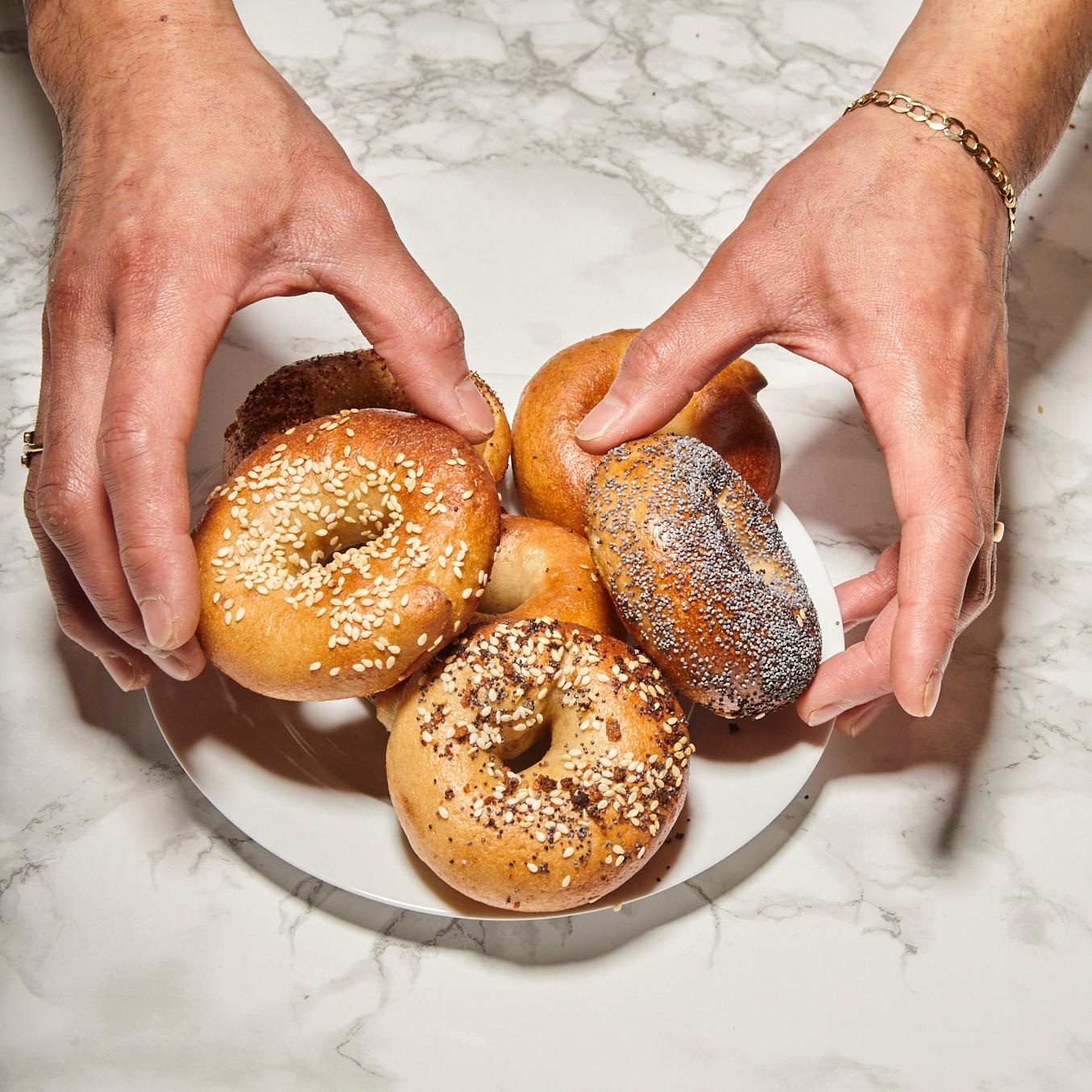“Because there's a hole,” Paul Traynor tells MOB Kitchen. Paul is the co-founder of The Bagel Guys and, more importantly, a talented bageller who you can find working his magic at his always busy Netil Market stand with business partner, Jordan. “Seriously though,” continues Paul, “bagels just taste really good and there's definitely a bit of a bagel renaissance going on in the world right now. There are loads of young interesting indies doing their own thing from Seattle (Mt. Bagel) to Miami (El Bagel) to Edinburgh (Bross). Everybody's different but shares the love of the bread with the hole.”
Selling around 1,000 bagels a week from their tidy Hackney hatch, The Bagel Guys are part of a growing crop of London’s new wave bagel makers. The Bagel Guys’s New York-style sourdough bagels are hand-rolled and made with top quality British flour; the subtle lactic tang you get from the sourdough is what makes TBG’s bagels so unique. And delicious.
“We took what we knew about sourdough bread, not very much admittedly, and applied it to bagels”, says Paul, “the first few batches looked pretty freakin' awful, but they tasted great and were very close to what Jordan and I both thought was the 'right' bagel flavour. A little crunch on the crust, yet soft and doughy on the inside, with malt but no sugar or honey added to the dough. It only has the mildest hint of sweet.”
Not only do The Bagel Guys use a live sourdough starter, but they also ferment their bagels for almost 24 hours – they’re mixed at about 8am, shaped at around 3pm, and then put in the fridge overnight until they are boiled, seeded, and baked starting at 6am the next day – for maximum bagel flavour.
You might be sceptical about all the chat surrounding gut cultures and microbiomes but the health benefits of sourdough bread over fast-acting commercial yeasts are nothing to sniff at. “As far as our not-so-super scientific understanding of it leads us to believe: the extended fermentation time allows the bad stuff in the flour to become really good stuff and makes peoples' tummies feel better than if they eat store-bought industrial bread or bagels,” says Paul.
